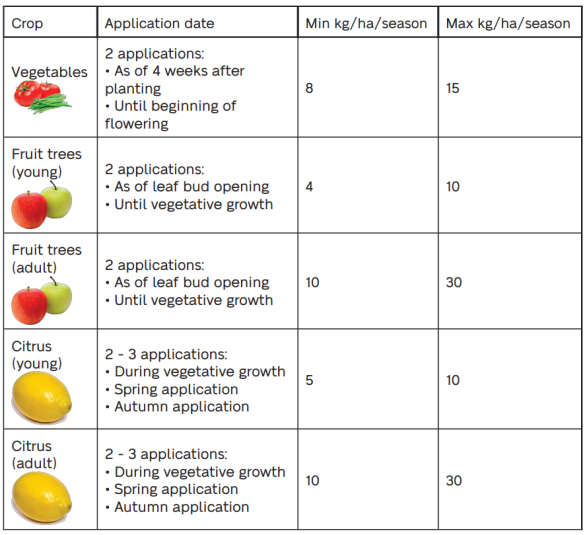
Aug . 13, 2024 19:36 Back to list
Top Organic Fertilizers for Boosting Tomato Growth and Yield in Your Garden
The Best Organic Tomato Fertilizer A Guide for Thriving Plants
Growing tomatoes is a rewarding endeavor for many gardeners, and aside from choosing the right variety, providing them with the best nutrition is crucial for healthy growth and bountiful yields. Organic tomato fertilizers are gaining popularity for their effectiveness and environmental benefits. This article explores the best organic tomato fertilizers and how they can help your plants thrive.
Why Choose Organic?
Organic fertilizers are derived from natural sources such as plant matter and animal waste. They improve soil structure, enhance microbial activity, and promote sustainable gardening. Using organic fertilizers reduces reliance on synthetic chemicals, leading to healthier plants and safer food production. By choosing organic, gardeners can contribute to soil health, water conservation, and biodiversity.
Key Nutrients for Tomato Plants
Tomato plants require a balanced mix of nutrients to flourish. The main nutrients needed are
1. Nitrogen (N) Essential for foliage growth and overall plant vigor. 2. Phosphorus (P) Important for root development, flowering, and fruit set. 3. Potassium (K) Vital for fruit development and plant resilience against disease and stress.
Organic fertilizers supply these nutrients in a slow-release form, ensuring a steady nutrient supply throughout the growing season.
Top Organic Tomato Fertilizers
1. Compost
Compost is one of the best organic fertilizers available. It is made from decomposed organic materials such as kitchen scraps, yard waste, and other biodegradable matter. Compost improves soil structure, adds essential nutrients, and fosters beneficial microorganisms. Mixing compost into your planting soil supports healthy root development and nutrient uptake.
2. Well-Rotted Manure
Manure from cows, chickens, or horses can be an excellent source of organic nutrients for tomatoes. Well-rotted manure provides a balanced mix of nitrogen, phosphorus, and potassium while also improving soil texture and aeration. It's crucial to use well-composted manure to avoid pathogens and weed seeds.
the best organic tomato fertilizer

3. Fish Emulsion
Fish emulsion is a liquid fertilizer made from fish byproducts. It is high in nitrogen and beneficial for leafy growth. Fish emulsion can be diluted and applied as a foliar spray or soil drench, providing quick nutrient uptake. It’s particularly useful during the early stages of tomato growth.
4. Bone Meal
Bone meal is a slow-releasing organic phosphorus source, supporting root growth and flowering. This fertilizer is especially beneficial when planting tomatoes or during the flowering stage. Mixing bone meal into the soil at planting time can promote a strong start for your plants.
5. Kelp Meal
Kelp meal is derived from seaweed and is rich in potassium, micronutrients, and hormones that promote plant growth. It enhances overall plant health, improves stress tolerance, and aids in fruit development. Kelp meal can be mixed with other fertilizers to create a balanced nutrient profile for tomatoes.
Applying Organic Fertilizers
When applying organic fertilizers, it’s important to follow guidelines for use
1. Soil Testing Before adding fertilizers, conduct a soil test to understand existing nutrient levels and pH. This helps to customize the fertilization plan. 2. Timing Apply fertilizers at the right time, typically during planting and then again during the growing season as needed. Avoid over-fertilizing, which can harm plants and the environment.
3. Application Method Incorporate granular fertilizers into the soil or apply liquid fertilizers as a foliar spray for quick nutrient absorption.
Conclusion
Choosing the best organic tomato fertilizer is essential for enjoying a successful tomato harvest. By understanding the needs of your plants and selecting high-quality organic amendments, you can promote healthy growth and yield delicious, homegrown tomatoes without relying on synthetic chemicals. Happy gardening!
-
Premium 10 10 10 Fertilizer Organic for Balanced Plant Growth
NewsJul.29,2025
-
Premium 10 10 10 Fertilizer Organic for Balanced Plant Growth
NewsJul.29,2025
-
Premium 10 10 10 Fertilizer Organic for Balanced Plant Growth
NewsJul.29,2025
-
50 Pound Bags of 13-13-13 Fertilizer for All Plants – Bulk & Organic Options
NewsJul.28,2025
-
High-Efficiency 15-30-15 Granular Fertilizer for Healthy Crops
NewsJul.28,2025
-
15-30-15 Granular Fertilizer for Optimal Crop & Lawn Growth
NewsJul.27,2025
